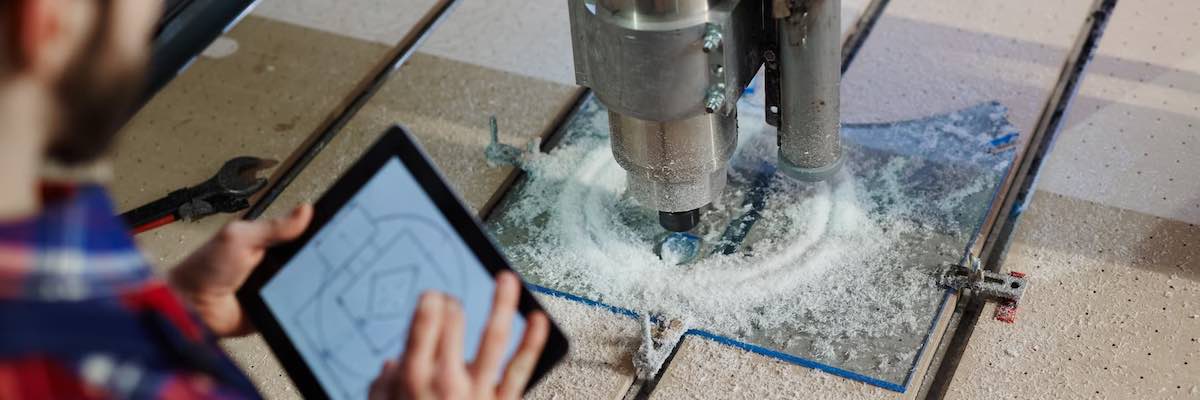The benefits of automated manufacturing systems

Understanding and utilizing automated manufacturing systems is a game-changer in today’s rapidly evolving industrial space.
Whether you’re interested in boosting productivity or enhancing operational efficiency in your manufacturing process, you’ve come to the right place.
This guide will help you explore:
- Several types of automated manufacturing.
- Benefits of automating manufacturing processes.
- Which industries stand to benefit the most.
Read on to discover how automation transforms traditional production methods.
What is an automated manufacturing system?
An automated manufacturing system is a technological solution that integrates automated machinery and computer-controlled systems to simplify the manufacturing process.
Such a system strengthens productivity, enhances precision, and promotes operational efficiency by significantly minimizing human involvement.
This innovative approach to manufacturing is at the core of the modern industry, transforming traditional production methods and paving the way for a more efficient, sustainable, and profitable manufacturing space.
Types of automated manufacturing systems
There are several automated manufacturing systems, each with unique functionalities that cater to different industrial needs. Let’s delve into some prominent examples.
Flexible manufacturing systems (FMS)
Flexible manufacturing systems (FMS) quickly adapt to changes in your product type and quantity produced. These make your production process more flexible, enabling you to keep up with fluctuating demand.
Computer-integrated manufacturing (CIM)
Computer-integrated manufacturing (CIM) is an automated system where a computer manages your entire production process. This holistic approach integrates design, planning, and management, leading to streamlined operations and improved quality control.
Programmable logic controllers (PLCs)
Programmable logic controllers (PLCs) are robust, flexible devices that control machinery and processes based on custom programming, ensuring consistent and efficient operations.

Image credit: pressfoto via freepik
Robotics
Robots perform repetitive, complex tasks with precision, enhancing productivity while also mitigating workplace risks. They’re especially prevalent in assembly lines and material handling.
Artificial intelligence (AI) in manufacturing
AI plays a transformative role in manufacturing automation. It allows for predictive maintenance, quality control, and demand forecasting, resulting in optimized operations and significant cost savings.
3D printing and additive manufacturing
3D printing and additive manufacturing have revolutionized the manufacturing industry by allowing on-demand production of complex parts with minimal waste.
This technology creates objects layer by layer, offering unparalleled design freedom and rapid prototyping.
Process automation
Repetitive process automation is a fundamental element of any automated system. It involves using software, robotics, and intelligent systems to simplify manufacturing processes. This reduces human error and improves overall efficiency.
It benefits accounting, sales, and support teams, as automation gives you back time that you can refocus on higher-value tasks.
Benefits of using automated manufacturing systems
Automated manufacturing systems offer many advantages that dramatically enhance your company’s operational efficiency and competitive edge.
Let’s explore some of the key benefits that these innovative systems provide.
Faster production times
By automating repetitive tasks, these systems ensure continuous, high-speed production. As a result, you deliver goods to the market quicker and meet consumer demand more effectively.
Minimize human error and safety risks
The precision and consistency of automated processes eliminate manual labor inconsistencies while minimizing exposure to potentially dangerous tasks.
Better analytics and production tracking
An automated system provides robust analytics and real-time tracking capabilities.
You can leverage this data to identify bottlenecks, monitor production progress, and make data-driven decisions, ensuring optimal manufacturing process performance.
Industries fit for automated manufacturing
Automated systems offer broad applications across various sectors. Industries such as automotive, electronics, pharmaceuticals, and food and beverage have capitalized on these systems to boost efficiency and productivity.
Regardless of the industry, any sector that requires precision, consistency, and speed in production can benefit from an automated system.
Examples of automated manufacturing processes
The integration of automated systems has transformed several manufacturing processes.
From assembly lines in the automotive industry to precision drilling in electronics manufacturing, automated systems drive efficiency and accuracy.
Other automated processes include:
- Robotic welding.
- Computer-aided design and manufacturing (CAD/CAM).
- Automated quality control systems.
Automate your manufacturing processes with Method
For a comprehensive, customizable solution to your manufacturing workflow, consider Method.
This automated solution simplifies all stages from quote to invoice, while also managing inventory and scheduling work orders.
By automating every process from sales to operations, Method boosts your productivity and overall efficiency, ensuring that your business stays competitive in today’s dynamic manufacturing landscape.
Watch the video below to learn more about Method’s process automation.
Bottom line: The value of automated manufacturing
Automated manufacturing systems have redefined manufacturing processes. Regardless of industry or scale, there are many benefits of implementing automation.
These systems provide unparalleled operational advantages, including:
- Faster production times.
- Minimized human error.
- Robust analytics.
- Real-time production tracking.
In an era of rapid technological advancement, staying competitive means embracing innovative solutions like automated manufacturing.
And with comprehensive, customizable solutions like Method, getting started with automation has never been easier.
In the video below, check out how an integration with Method helped double this shipping container company’s revenue in just three years.
See how Method helps you get your business back on your side!
Image credit: senivpetro via freepik



